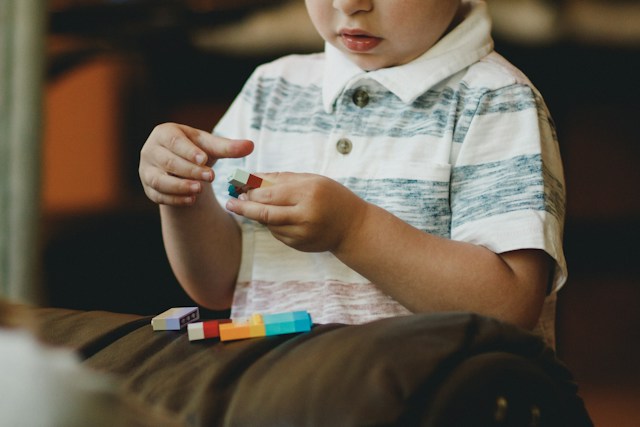Children may begin to recognize differences between themselves and their neurotypical peers, prompting questions and prompting them to seek assistance from adults. This can cause questions to be asked and lead them to approach adults for guidance.
Experts advise parents and guardians to inform children as soon as they receive an autism diagnosis in order to help them find support groups and recognize that others face similar struggles.
1. Make it a family affair
As psychologists, we often hear stories of children learning their autism diagnosis in unexpected ways – whether through TikTok, playground chatter or adult conversation. Though there’s no simple solution for sharing this news with your child, experts suggest sharing it in an environment they feel most at home – such as during dinnertime conversations or while riding in a car ride, or reading a book while cuddling close in bed together.
Arnold emphasizes the importance of continuing the conversation after you initially inform them, suggesting asking how they’re feeling following initial conversation and following up every two weeks to see if any further questions arise. She suggests using these conversations to help your loved ones better comprehend their diagnosis; such as asking them how they might look at themselves in relation to family or friends in terms of similarities and differences.
Children may ask specific questions about autism, such as “How did I get it?” and “Is it contagious?”. Although during early childcare you may not immediately have all of the answers, you can try to help make sense of their situation by explaining that autism is a neurological condition which impacts how their brain works, similar to blindness; just like people need extra assistance for social skills and self-regulation needs, some children require extra assistance with autism too.
2. Don’t be afraid to ask for help
Kids often react to receiving their autism diagnosis with various emotions: relief, upset, fear or confusion. It is essential that we remain supportive during this process and help them process their emotions; remembering they remain the same person even though autism forms part of who they are as an individual.
If it comes time to tell your child something important, choose an informal yet distraction-free setting for the conversation. Experts advise initiating such discussions with either someone their child trusts or in a setting in which they feel most at ease; an example would be dinner or car rides as good places. When speaking to children, be honest, direct, age-appropriate in your explanation and be ready to answer any questions they might pose.
After having had your conversation, make sure to provide resources that will assist your child in understanding their diagnosis – this might include books, videos or websites specifically aimed at children. Also, check in periodically with them, every week or two at least, to see how they’re feeling and offer additional support if needed.
3. Don’t be afraid to ask questions
Children with autism recognize they are different and will ask questions. Unfortunately, they may draw the wrong conclusions about these differences and worry that they are being bullied or that their friends don’t like them, so sharing information about their autism diagnosis is crucial in providing comfort and motivation to push through challenges that might otherwise seem too great to bear.
When discussing your child’s diagnosis with them, it is best to do it in an unhurried environment like family time (over dinner, car rides, or curled up together in bed), so they have time to fully absorb all the information without interruption from others. You might also involve older siblings if your child has close relationships with them.
Parents often receive questions from autistic adults regarding “How did I get this?,” “Is it contagious?”, and “Will it go away?” Be ready to provide answers for these and any other inquiries that arise.
Consider treating it like any other topic important in your child’s life, and provide numerous teachable moments throughout the day on how to interact with people living with autism. Just as important is teaching your children about sharing, listening, and being respectful towards one another.
4. Don’t be afraid to be honest
Parents might fear upsetting their children by informing them they have autism, but it’s crucial for their wellbeing that they are honest with them about it. Being open allows parents to avoid feeling like they’re hiding something while also opening a dialogue about what the individual needs in life.
As it can be challenging to know how much detail to include, try your best to be as honest as possible in this discussion. Be prepared for children to pose questions; for instance they might inquire as to their diagnosis or contagion; explain that autism runs in families and while it won’t go away anytime soon they can receive help with dealing with its challenges.
Remind them of these strengths can help build up confidence about their diagnosis.
Assure your child of their right to come to you for support. If they need someone to talk to, be there as much as possible; or help them create a list of people they can turn to such as mental health professionals, teachers, family friends or others they trust for assistance.

